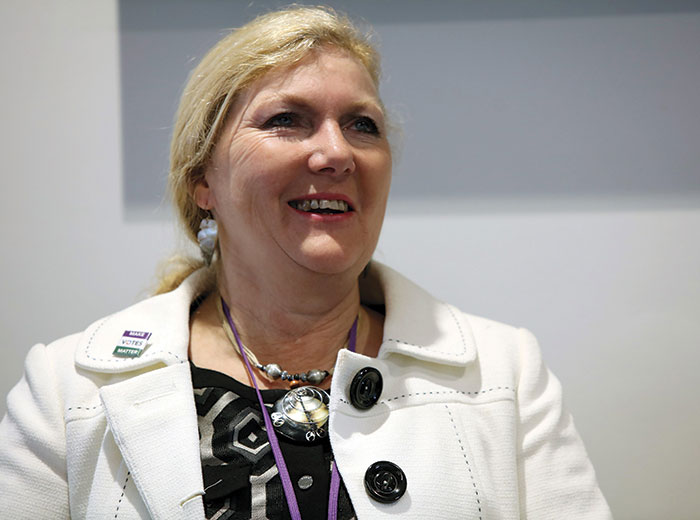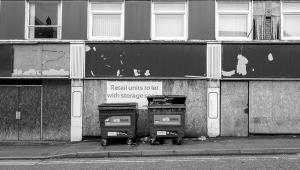
Independents such as Marianne Overton’s Lincolnshire Independents in North Kesteven made huge gains in the local elections
From North Kesteven in Lincolnshire to Uttlesford in Essex and Ashfield in Nottinghamshire, the political map of England has changed – perhaps irrevocably.
Throw in northern industrial towns, like Middlesbrough – where a non-aligned candidate last month trounced Labour’s mayoral candidate with a 10,000-plus majority – and it’s clear a quiet revolution is sweeping aside established parties.
While the story of last month’s local elections in England was seen partly as a rebuttal of the two-party system, with a divided official Labour opposition unable to exploit popular discontent against a minority Tory government, the sub-text of the sweeping gains by independents was sidelined.
Traditional voting allegiances are disappearing.
Over 2,000 independents, ranging from unaligned councillors to larger groups registered as ‘parties’, now grace council chambers in England, with 604 gains last month.
Rejecting the long-held assumption that council elections reflect national opinion rather than local issues, Marianne Overton, leader of the Lincolnshire Independents, which is within a whisker of taking control in North Kesteven, is buoyant.
“This election was all about pressure on local services from big cuts in central funding and everyday problems,” she insists.
“People are fed-up paying taxes and getting less in return.”
But local populism can dodge an all-important question that few want to address: are you prepared to pay more for local services and, crucially, stomach the consequences of the first property revaluation since 1993?
'Local populism can dodge an all-important question that few want to address: are you prepared to pay more for local services and, crucially, stomach the consequences of the first property revaluation since 1993?'
That must mean those with the broadest financial shoulders pay more to protect the weakest.
I apologise for raising a perennial issue, which many find so tiresome that their response to any suggestion of a long-overdue revaluation, still less a thorough reform of local taxation, is a yawn and a sigh of incredulity.
How often have you heard the rejoinder that councils will just have to learn to live within their means?
Yet those ‘means’ are so diminished that too many authorities are staring over a cliff into technical insolvency.
I just wish that some brave, realistic national leader would recognise that ‘getting real’ actually means belatedly addressing the deep-seated local funding crisis, addressing reality with positive funding proposals rather than palliative measures.
I asked a prominent chief executive, leading a national lobbying organisation, whether Labour might finally see sense.
“Labour local government leaders privately say that it’s been put into the ‘just too difficult to address’ file,” he lamented.
None of this, of course, should detract from the enormous successes of the hundreds of new independent councillors, now finding their way through the financial maze in countless town halls – and discovering that the municipal cupboards are bare.
Overton also leads the fast-expanding independent group in the Local Government Association – and, hence, might have a seat at the top table when LGA deputations meet ministers.
These ministers, and the opposition, should remember one thing: independents are no longer single-issue ‘nimbys’ but a broad church of both conservative (small ‘c’) councillors and more adventurous, politically savvy operators – like the new independent mayor of unitary Middlesbrough, former hedge fund trader and local philanthropist Andy Preston.
He has been both a Labour and Conservative member.
“It’s time for change,” he says. Well, that’s certainly happened in this once-solidly Labour town, where independents now hold 23 of the 46 council seats.
Change, indeed – everywhere.
Except where it matters. And no change in mindset at the top.




















